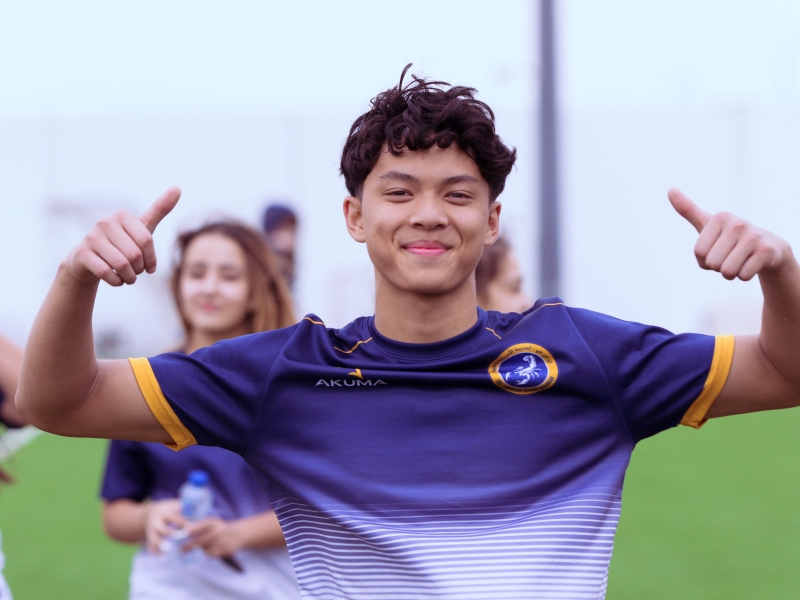ASD is home of the Scorpions!
Athletics and sports are a big part of life at ASD, with opportunities to join teams in volleyball, soccer, tennis, badminton, cross country, track and field and swimming.

American School Dhahran (ASD) is a not-for-profit, coeducational, Kindergarten to Grade 12, international school offering an American standards-based curriculum capped by either the AP Capstone Diploma or the International Baccalaureate Diploma Programme.
We encourage our students to be active learners which develops learner agency. Learner agency is students taking ownership of their own learning by using critical thinking and feedback to independently make choices. They are able to set goals that align with their interests, needs and motivations and are able to reach their goals.
Agency and autonomy increase as students progress, and students are given ample opportunities to grow through an exciting range of enrichment programs, after school activities, athletic programs and leadership opportunities.
At American School Dhahran we are driven by our mission, "We inspire innovation and compassionate action."We view our community as a family of educators, students and parents working together to live our mission.
ASD is home of the Scorpions!
Athletics and sports are a big part of life at ASD, with opportunities to join teams in volleyball, soccer, tennis, badminton, cross country, track and field and swimming.
